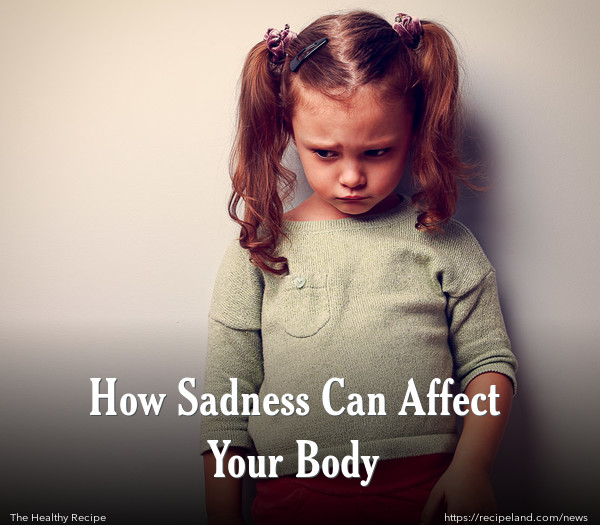By now you probably know that mental health issues like clinical depression can be linked with health problems like heart disease, diabetes, and panic disorders. But, did you realize that even the regular sadness that comes along with just having a bad day or hanging out with a dreary friend can affect your health? While they may not cause you to have clinical depression, there are effects you should know about.
A recent study published in the journal Molecular Psychiatry found that feelings of sadness can release stress-related chemicals in your brain, which can lead to an increase in inflammatory proteins in your blood. These inflammatory proteins can contribute to an increased risk of heart disease, stroke, and metabolic syndrome.
Sadness can come from your brain and travel through your body—metaphorically, that is. This is because certain neurotransmitters, called opiods, become increased in order to balance the increase in stress. These opiods will affect your immune system and put you at a higher risk for certain diseases. In the study, opiods triggered the release of IL-18, which is an inflammatory protein associated with an increased risk of heart disease.
John E. Mayer, Ph.D., a clinical psychologist and author of Family Fit, states, “Even though sadness is not depression, it still depresses all body function, just for a much shorter span of time.” He further explains that sadness can cause an imbalance in your “allostatic load,” which is a technical term for the overall beating your body takes when it is exposed to accumulated stress, such as sadness. This helps to explain how headaches, achy joints, sore muscles, and a weakened immune system become more pronounced when you are feeling down.
When you are sad, your healthy eating habits may not be as strong. A study published in 2013 in PLOS ONE found that when you are feeling down, you have an increased ability to taste bitter, sweet, and sour flavours. This is why we reach for the sweets and other junk foods when we are in the dumps. Mayer explains, “Individuals who are sad consume significantly more [junk] and fewer micronutrients, putting themselves at a higher risk for weight gain in the short term and hypertension and heart disease in the long term.”
In addition to having health effects, regular sadness can be difficult to get rid of. This is usually because sadness is connected to a life event or something that has a significant effect on our lives, like fighting with your partner. This can mean that the feelings stick around a little longer. The longer it lasts, the more likely it is to contribute to the release of stress hormones like cortisol, and affect your blood sugar, blood pressure, and sleep, which can all affect your health in significant ways.
Fortunately, there are things that you can do to battle the blues. Regular sadness is easier to fight than clinical depression, which can be all-consuming. Being mindful can help you avoid feeling sad all of the time, and you should still be able to seek out and find things you enjoy—something that a clinically depressed person is less likely capable of. Be sure to exercise, follow good sleep hygiene habits, and eat a healthy diet to reduce the effects of stress and sadness on your body.










Comments
It can be pretty hard to not be sad a lot unless you somehow have the ability to avoid reality.